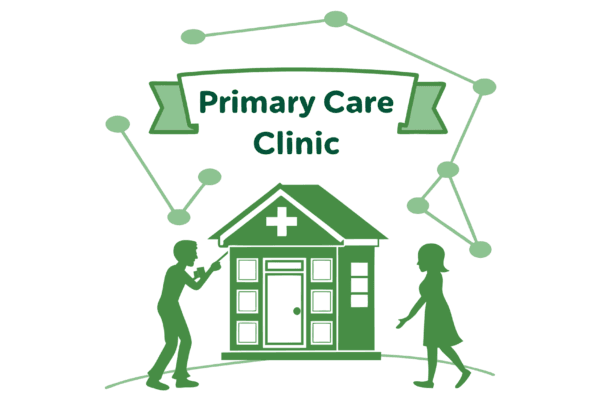The market for Urgent Care practices in Chicago is active. This presents a significant opportunity for practice owners like you. Selling your practice is more than just a transaction. It is a major financial and personal milestone that requires careful planning to achieve the best outcome. This guide provides key insights into the Chicago market, valuation, and sale process to help you navigate your journey with confidence.
Chicago’s Urgent Care Market Overview
The demand for urgent care is strong across the country. Patients increasingly choose the convenience and affordability of urgent care centers over long waits for primary care appointments or costly emergency room visits. This national trend is very apparent in the metro Chicago area. The city’s dense population and fast-paced environment make your practice a vital part of the healthcare landscape.
This high demand has not gone unnoticed. Larger healthcare systems and private equity investors are actively looking to expand their footprint in Chicago. They see well-run urgent care centers as valuable strategic assets. For a practice owner, this means there is a healthy pool of potential buyers. It also means you will be negotiating with experienced dealmakers, making preparation a critical first step.
Key Considerations for a Successful Sale
When preparing to sell, sophisticated buyers will look past the surface. They want to see a healthy, well-managed business. Focusing on the right areas before you go to market can dramatically impact your final valuation. Here are three areas to focus on now.
-
Your Financial Story. Buyers want to see clean, clear financials that show consistent revenue and, more importantly, profitability. This is not just about your tax returns. It is about presenting your practice’s true earnings power. We often find that owners who prepare their financial story in advance avoid leaving money on the table.
-
Your Operational Strength. How efficient is your patient flow? What does your staffing model look like? Do you have strong patient volume and a good standing in the community? Answering these questions with clear data demonstrates a stable business that a new owner can successfully operate from day one.
-
Your Compliance Record. In healthcare, legal and regulatory compliance is a major point of due diligence. Having your documentation, licenses, and billing practices in perfect order removes a significant risk for a buyer and prevents last-minute surprises that could derail a deal.
Market Activity and Consolidation in Chicago
If you follow the local healthcare business news, you have likely noticed a trend: consolidation. We see it clearly in the Chicago urgent care space. The recent acquisition of Physicians Immediate Care by WellNow Urgent Care is a perfect example. This single transaction reshaped the local market, showing that large, well-capitalized players are actively purchasing established practices to fuel their growth.
What does this mean for you as an independent owner? It means your practice is likely more valuable than ever. These large groups are not just buying a business. They are buying a strategic location, a patient base, and a team that is already in place. This activity creates a competitive environment where multiple buyers may be interested in your practice, which is the best way to ensure you receive a premium valuation. Timing your entry into this market is a key strategic decision.
Understanding the Sale Process
Selling your practice is a structured process, not a single event. Knowing the roadmap helps you prepare for each step and avoid common pitfalls along the way. While every sale is unique, most follow a similar path from preparation to closing. The due diligence stage is often where well-prepared owners shine and unprepared owners run into trouble.
| Stage | What It Means for You |
|---|---|
| 1. Preparation & Valuation | We work with you to analyze your finances, organize key documents, and establish a realistic, defensible valuation. This is the foundation for the entire process. |
| 2. Confidential Marketing | Your practice is presented to a curated list of qualified buyers without revealing your identity. The goal is to create interest and competitive tension. |
| 3. Buyer Negotiations | We field offers, help you compare them (it’s not always about the highest price), and negotiate a Letter of Intent (LOI) with the best-fit buyer. |
| 4. Due Diligence | The buyer thoroughly inspects your financial, operational, and legal records. Being prepared for this scrutiny is critical to keeping the deal on track. |
| 5. Closing | Final legal agreements are signed, funds are transferred, and you officially transition ownership of the practice. |
How Your Urgent Care Practice is Valued
One of the first questions every owner asks is, “What is my practice worth?” The answer is more complex than a simple multiple of your revenue. Sophisticated buyers value your practice based on its profitability, specifically a metric called Adjusted EBITDA. This stands for Earnings Before Interest, Taxes, Depreciation, and Amortization.
Think of Adjusted EBITDA as your practice’s true cash flow. We calculate it by taking your stated profit and adding back things like your personal auto lease, excess owner salary, or other one-time expenses that a new owner would not incur. Normalizing your earnings this way often reveals a much higher profitability than you might see on paper.
This Adjusted EBITDA figure is then multiplied by a number based on market conditions, your practice’s size, its growth trajectory, and its reliance on you personally. A multi-provider practice in a prime Chicago location will command a higher multiple than a smaller, single-provider clinic. A comprehensive valuation is the only way to truly understand what your practice is worth in today’s active market.
Planning for Life After the Sale
The day you sign the closing papers is a beginning, not just an end. The structure of your sale has major implications for your finances, your team, and your own future. Thinking about these factors early in the process ensures your goals are met.
-
Protecting Your Team. A key concern for most owners is what happens to their dedicated staff. The right buyer will see your team as a major asset. We can help structure deal terms that prioritize employee retention and protect the culture you have built.
-
Defining Your New Role. Do you want to leave immediately, or would you prefer to stay on for a year or two? Perhaps you want to continue practicing medicine without the headaches of management. Your transition plan should be designed around your personal and professional goals.
-
Structuring Your Proceeds. The top-line number is not what you take home. We help you consider tax-efficient structures, as well as options like retaining some equity in the new, larger company. This “rollover equity” can provide a second, often larger, payday when the new platform is sold again in the future. Your legacy deserves a strategy.
Frequently Asked Questions
What is the current market demand for Urgent Care practices in Chicago?
The market for Urgent Care practices in Chicago is active with strong patient demand. The city’s dense population and fast-paced environment drive patients to prefer urgent care centers for convenience and affordability over long wait times for primary care or expensive emergency room visits. Larger healthcare systems and private equity investors are actively seeking to expand in this space, creating a healthy pool of potential buyers.
What financial details should I prepare to sell my Urgent Care practice effectively?
When preparing to sell your practice, it’s crucial to present clean, clear financials that demonstrate consistent revenue and profitability. This includes not only tax returns but a comprehensive financial story showing your practice’s true earnings power, commonly measured by Adjusted EBITDA. Preparing your financial story in advance helps avoid leaving money on the table during the sale.
How is the value of my Urgent Care practice determined in the Chicago market?
The value of your practice is determined based on its profitability, specifically using Adjusted EBITDA (Earnings Before Interest, Taxes, Depreciation, and Amortization). Adjusted EBITDA reflects your practice’s true cash flow by normalizing earnings for personal or one-time expenses. This figure is then multiplied by a factor dependent on market conditions, practice size, growth trajectory, and reliance on the owner, with larger multi-provider practices in prime locations commanding higher multiples.
What are the key steps in the process of selling my Urgent Care practice?
The process typically involves five stages: 1) Preparation & Valuation, analyzing finances and establishing valuation; 2) Confidential Marketing, presenting the practice to qualified buyers anonymously; 3) Buyer Negotiations to compare offers and negotiate terms; 4) Due Diligence, where the buyer inspects financial, operational, and legal records; and 5) Closing, finalizing legal agreements and transferring ownership.
How should I plan for life after selling my Urgent Care practice?
Planning for life after the sale involves several considerations: protecting your team to ensure employee retention; defining your new role, whether leaving immediately or staying on temporarily; and structuring the proceeds in a tax-efficient way. Options include retaining some equity in the new company, which can yield additional future payouts, and ensuring your transition aligns with your financial and personal goals.



